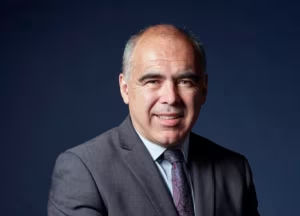Highlights of the 15th World Congress of the International Neuromodulation Society: an expert interview with Prof. Marc Russo
 Prof. Marc A. Russo
Prof. Marc A. Russo
President, International Neuromodulation Society
Director of Hunter Pain Specialists, Hamilton Day Surgery Centre, Genesis Research Services, Broadmeadow, Australia
Co-Director, Innervate Pain Management Program, Newcastle, Australia
The 15th World Congress of the International Neuromodulation Society (INS) was held on May 21st-26th in Barcelona, Spain. This year’s congress had the theme: “Neuromodulation: From Scientific Theory to Revolutionary Therapy”, and emphasized the range of neuromodulation therapies and development from rigorous scientific theory into proven clinical therapies.
In an expert interview, Prof. Marc Russo discusses the highlights of this year’s INS congress.
Could you tell us a little about this year’s INS congress?
We had a great scientific congress. Since we had to delay by a year because of the pandemic, we weren’t sure whether many people would turn up and whether they would benefit from it, but we had 1500 people attending, far more than we expected, and the feedback was universally positive. People want to attend events in person and get all the benefits, not only from the knowledge delivered from the podium but also the opportunity to interact, network and have one-on-one discussions, which add great value to the process.
What were this year’s hot topics in neuromodulation at INS 2022?
The highlights were how dynamic the field is at the moment. We saw advances from a wide range of different areas within neuromodulation, including noninvasive brain stimulation and vagus nerve stimulation (external vagus nerve stimulation as well as implantable stimulators). We also saw advances in deep brain stimulation (DBS), where people are now looking at targets outside of Parkinson’s Disease and starting to hone in on using technology very wisely. Often the targets for DBS are only 1-2 mm. Even with stereotactic target location it can be difficult to hit the target consistently, and new software can improve the success rate.
In terms of spinal cord stimulation we also saw lots of advancements. Companies presented their R&D pipelines, and there are going to be a lot of exciting developments coming into the clinical field very shortly. We were very keen to see cost effectiveness data, and a number of papers showed high cost effectiveness for spinal stimulations. It was fed back to me that one highlight was a talk I presented on a novel form of spinal cord stimulation – dorsal horn dendrite stimulation – that is compatible with all existing systems.1
Another highlight was a presentation by the INS on the growth of our mentorship programme. Over 150 people have applied to be mentored by a more senior member of the INS. This can provide a sounding board and guidance in the field. We also had a young neuromodulators’ reception that was overflowing.
Any take home messages?
The take home message is that people are crying out for this sort of congress access and networking. We saw the largest number of attendees under 35 that we’ve ever had for any conference, and also a large number of engineers and research scientists. This tells us that the field is very viable and energetic, which should pay dividends for the future.
What other INS activities are planned?
The next conference is in Vancouver, Canada in May 2024. In addition, we have an interim meeting which will be held in Mumbai, India, 11-13 November 2022, and there will be a European Chapters’ combined meeting in Hamburg in 2023.
References
- Russo M et al. Spinal Cord Stimulation Targeting Non-Dorsal Column, Non-Axonal Structures- Can it be Done? Clinical Trial Results Presented at: International Neuromodulation Society (INS) Word Congress, Barcelona, Spain, 21 May 2022.
Article information:
Acknowledgements: Medical writing assistance was provided by Katrina Mountfort of Touch Medical Media, and supported by Touch Medical Media.
Disclosures: Marc Russo has no financial or non-financial relationships or activities to declare in relation to this article.
Access: This article is freely accessible at touchNEUROLOGY.com © Touch Medical Media 2022
Support: Writing of this article was supported by Touch Medical Media.




